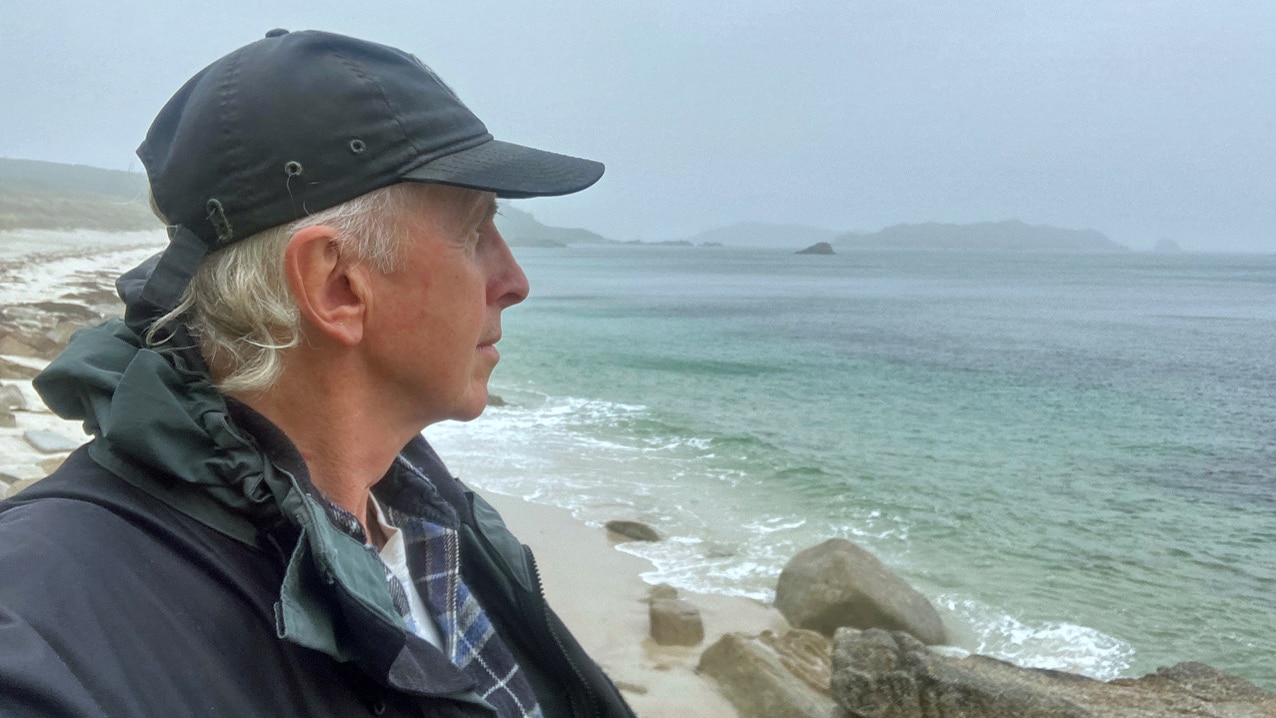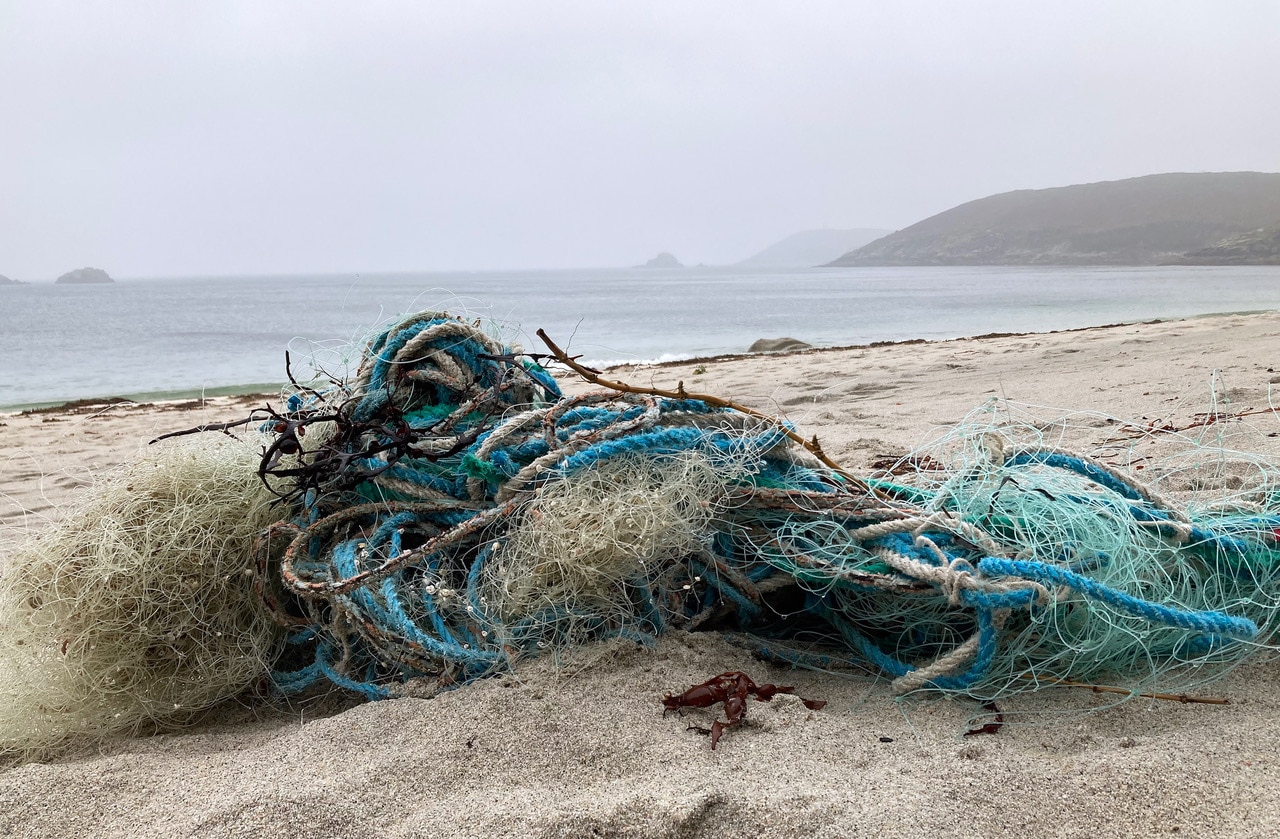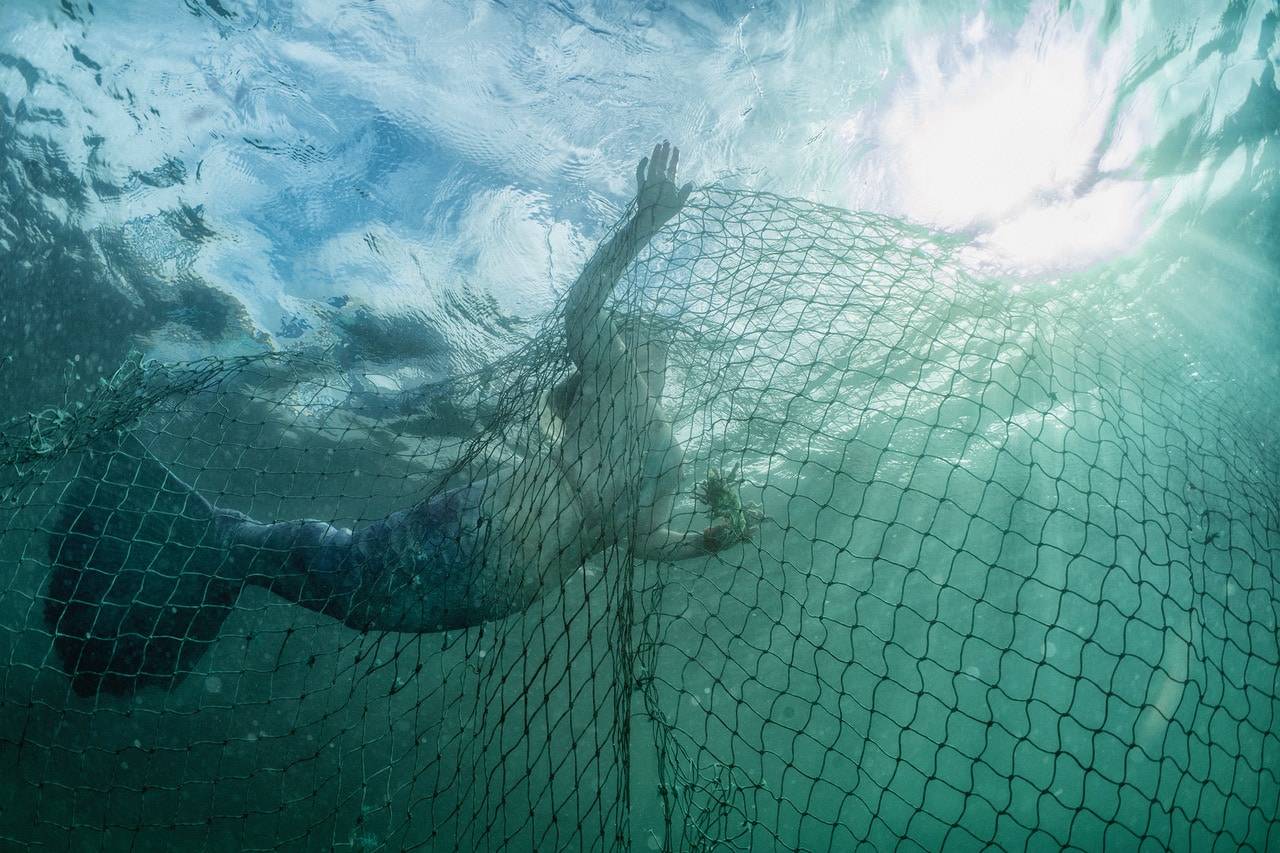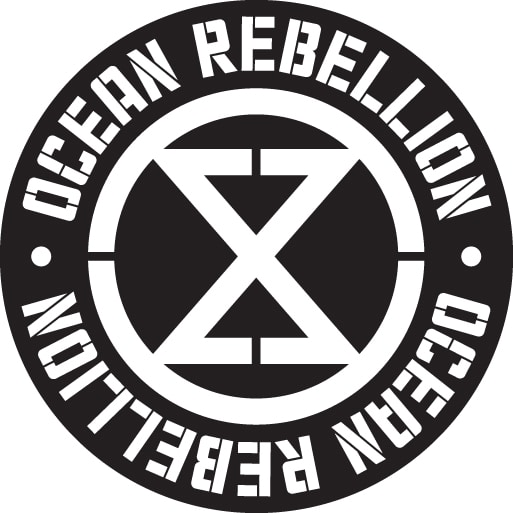Marine Life & Conservation Blogs
Divers, Protect our Seas.

As divers and lovers of the ocean, we need to understand and protect this now fragile environment. We are the few who actually visit and see what is going on below the water. For those of you who have been diving many years, you will have seen the degradation of marine life and habitat first hand. For those newer to diving take stock of what we have and help to protect it.
There are many factors contributing to the demise of the world’s oceans. Pollution, climate change and over-fishing are the three most obvious. Globally, these issues are slowly being addressed but over-fishing is still knocking on the back door of reason. We still continue to support factory industrial fishing by buying their products. As I see fish stocks diminishing every year I know we have passed the point where sustainable commercial fishing is a viable option. We keep species on the brink of commercial extinction and are then alarmed when they crash. We are changing the very nature of our oceans, and not for the better.
I was recently on a UK off-island enjoying the peace and relative isolation from modern day trappings. As I sat on a quiet beach, I saw a seal rise out of the water just a few hundred meters from the shore. It stayed on the surface for about thirty seconds and then sank out of site. Lovely. Then to my surprise it surfaced after a few minutes in exactly the same spot. This happened a few more times before I realised with absolute sadness that the seal was trapped by something and was fighting to the surface for air before being dragged back down. What could I do…….Nothing…. It was very cold and I had no wet suit to swim out and try to help. But even if I did the danger and risk of being caught myself was high as well as the possibility of being bitten by the panicking seal. I tried to phone a few local people to ask if anyone with a boat could help. But there was no signal and I knew in my heart that there were no boats anywhere near. I ran to the top of the hill and tried to call again. My fears were confirmed. There was no one who could help.
I went back down to the water and could only watch as the seal continued to fight for its life, surfacing every few minutes and taking deep breaths before being pulled under by what ever it was. On the beach next to me was part of a washed up fishing net. This was more than likely the kind of thing trapping the seal. I watched for half an hour. Caught up in my emotions and helplessness. I desperately wanted the seal to break free but I knew that was not going to happen. After another hour I wished the seal not to come up again so that its suffering was at an end. But it kept fighting. I stayed there until it started getting dark. In some stupid way I felt I should keep it company. To say you are not alone and will be remembered.
The tide was rising, making the seal’s struggle to the surface harder with every passing minute. I had to leave. I didn’t go back to see if it fought throughout the night, although I have know seals and other marine mammals have done that. In the end the seal would have finally drowned and is now resting on the sea bed, bloated and entangled. If I had not seen this happening no one would have ever known. How much more is there happening out of sight that we just don’t witness.
As I was writing this I was introduced to Ocean Rebellion who have just produced a short film shot in Cornwall on netting and trawling. It is a stark film called ‘No More Fish In The Sea’ and can be seen on YouTube. It shows a Mermaid trapped and drowning in a net. You may think this over the top, but the horrors of drowning, in any circumstance, are the same for all air breathing animals, whales, dolphins, seals, sea birds, otters and many others and must not be ignored just because most victims are not human. If you can, watch the video and think hard about what it is saying.
‘No More Fish In The Sea’
The introduction to the video says:
Due to industrial fishing practices there is now no such thing as sustainable fishing. If we transform our fishing practices this could change. We need to end the wholesale destruction of the ocean through factory fishing on an industrial scale.
Ocean rebellion is calling for an end to industrial fishing practices and an end to bottom trawling now.
Bottom trawling is a devastating form of fishing that wreaks havoc on the sea bed, ripping up swathes of precious marine habitats and killing vast amounts of sea life. For every bottom trawled fish on your plate up to 16 other fish will have been caught and killed.
Living oceans mean a living planet and a living humankind. But humans are killing the oceans. When they die, we die. Their future hangs in the balance – and with them the future of humans and all life on Earth. Ocean Rebellion will help turn the tide.
Bottom trawling is killing us all.
Oceanic wildlife has a wonderful ability to recover if we leave it alone.
Because the sea is rising we will rise
Because the coral is fading we will fight
As the seas are mined we will mobilise
While the oceans are plundered we will protest
Lifeguards wanted
Join us.
Blogs
Saba’s Plan for a Coral Comeback

Saba has an exciting new initiative to restore its coral reefs. This new project, running from 2024 to 2026, will focus on reviving key species in the island’s underwater ecosystems. With a collaborative team from the Saba Conservation Foundation (SCF) and Van Hall Larenstein (VHL) University of Applied Sciences, the project aims to restore both corals as well as sea urchins.
This initiative is centered around coral restoration, specifically reviving two essential coral species—staghorn coral (Acropora cervicornis) and elkhorn coral (Acropora palmata). By mapping parent colonies and using a technique known as coral gardening, SCF will create and maintain coral nurseries. These corals will eventually be outplanted at key reef sites around Saba to not only expand the number of coral colonies, but also provide essential fish habitat. The project focusses on installing coral nurseries, training staff with the newest techniques and starting with the restoration of key reef sites.

Reef Cleaners to the Rescue
It’s not just corals getting a makeover—this project also shines a spotlight on the essential role of grazers, particularly sea urchins. VHL is leading the charge on cultivating and restocking two key sea urchin species, West Indian sea egg (Tripneustes) and long-spined sea urchin (Diadema), known for their ability to keep algae in check. By removing algae, which are important competitors of corals, they help the coral to thrive. By restoring these “reef cleaners,” Saba’s project will give corals the breathing room they need to grow, setting the stage for a healthier, more balanced marine ecosystem.
From Tiny Urchins to Big Goals
The project will be funded as part of the Dutch Government’s Nature and Environment Policy Plan (NEPP) 2020-2030 for the Caribbean Netherlands, a comprehensive initiative aimed at conserving and restoring the unique natural environments of the Dutch Caribbean islands, including Saba, St. Eustatius, and Bonaire. This project is aiming for big milestones: build and maintaining coral nurseries, the expansion of urchin cultivation facilities, and the creation of a dedicated research center. By 2026, the project hopes to ramp up coral and grazer restoration, with the ultimate goal of extending these efforts across the Dutch Caribbean. By linking local initiatives to broader regional goals, Saba’s restoration project promises to leave a lasting impact on both the environment and the community.
Find out more about the DCNA at dcnanature.org.
Blogs
Reef-World marks two decades of marine conservation: strengthening impact amid coral reef threats

Empowering ocean stakeholders to tackle future challenges and ensure the survival of coral reefs and humanity
2024 marks the 20th Anniversary of The Reef-World Foundation’s tireless efforts for global coral reef conservation. The UK charity is the international coordinator of the UN Environment Programme’s Green Fins initiative, known as the leading voice in sustainable marine tourism. Today, Reef-World released its 2023-2024 Impact Report outlining a year of substantive growth and impact in its marine conservation programmes.

Impact Report Highlights:
- Impressive improvements in environmental behaviours to protect coral reefs by the marine tourism industry as the global participation of Green Fins increases.
- Continued capacity building for government and NGO staff to effectively manage marine tourism activities in Asia, Caribbean and Red Sea regions.
- For the first time in Green Fins’ 20-year history, tourism operators have achieved ‘Best Environmental Performer’ status by demonstrating the lowest possible environmental impact in their environmental assessments. In 2024, three dive operators achieved this challenging milestone.
- Significant increases in global participation of Reef-World’s innovative digital conservation tools.
- 138 Green Fins dive operator members achieved the strict threshold for PADI Eco Center recognition.
- Developed four new educational materials and translated two into 16 languages to support the marine tourism industry in achieving sustainability targets.
- Establishing a new Reef-World Development strategy and recruiting new roles – Development and Programmes Managers.
- Reef-World’s board welcomes new Chair and Trustees strengthening organisational leadership.

Reef-World started as a one-person mission to inspire and empower communities to act in conserving and sustainably developing coral reefs and related ecosystems. Today, the team of 12 continues to meet this mission by inspiring and empowering the global marine tourism community to be exemplary sustainability leaders by using the Green Fins guidelines and tools to simultaneously use and protect the world’s precious reefs.
In April 2024, the fourth global coral reef bleaching event was confirmed. Reef-World’s work has never been more urgent as the marine environment, and the benefits they provide humanity, continue to be eroded by global threats. The reduction of local threats, like those from the marine tourism industry, is an essential step to ensuring a future where coral reefs survive and continue to support the millions of people who depend on their ecosystem benefits. Reef-World’s work buys time for coral reefs and related ecosystems to be resilient to the impacts of global threats.
“Right now our corals are facing the greatest fight of their existence as the terrifying predictions of the steps towards their complete extinction are starting to come true. But all is not lost, reefs are resilient and they have existed on this planet for millions of years. We must take action now, to buy time for reefs by reducing threats facing them and allowing them to react and adjust to the changing environment they need to survive in.” – Chloe Harvey, Executive Director
Looking Forwards:
Like coral reefs, the Reef-World team needs to be resilient in the face of the complex challenges of the conservation sector. Reef-World has invested significantly in developing a Culture of Care to ensure the well-being of its team on a daily basis, continuing to be an exemplary employer to enable its team to best achieve the mission for coral reef conservation.
With the foundations of a Culture of Care and organisational development laid, Reef-World is emerging from the end of a natural organisation life cycle, that brings the challenges of growth and scale, stronger than ever. With a new strategy in place to generate much needed resources, Reef-World is excited for the opportunities to leap forward, continue to scale our impact and lean into new innovations and untapped opportunities for marine conservation.
We continually strive to become a forward-thinking organisation that delivers on our goals and commitments to our stakeholders with fresh approaches and not being afraid of steering away from a “normal approach.” This approach is not only applied to our programmes of work but also internally and carries over to our Culture of Care for our team.” — JJ Harvey, Operations Director

The Reef-World Foundation is immensely grateful for the continued support of its grant funders: UN Environment Programme, IUCN’s Blue Natural Capital Financing Facility, Adventure Travel Conservation Fund, PADI Aware Foundation, and World Nomads Footprints Program.
Reef-World would also like to express its gratitude to international partners whose vital support has resulted in significant tangible benefits for our work and mission: PADI; Professional SCUBA Schools International (PSS); Explorer Ventures; 1% for the Planet; ZuBlu; Snorkel Venture, GSTC; Dive O’Clock; Seven Dragons; DiveAssure and Eco Beach, without whom these achievements would not be possible.
The full 2023–2024 Annual Impact Report is available on Reef-World’s website.
-

 News2 months ago
News2 months agoIconic SS United States to become the World’s Largest Artificial Reef
-

 News3 months ago
News3 months agoBook Review – 52 Assignments: Underwater Photography
-

 Gear News3 months ago
Gear News3 months agoDYNAMICNORD – New German diving brand enters the British market
-

 News3 months ago
News3 months agoExploring Cenote El Pit: A Diver’s Dream
-

 Gear News3 months ago
Gear News3 months agoTry BARE drysuits (and maybe even win one!) this Friday with Sea & Sea at North West Dive Fest
-

 Marine Life & Conservation3 months ago
Marine Life & Conservation3 months agoBook Review: Coral Triangle Cameos
-

 Blogs2 months ago
Blogs2 months agoDive the Egyptian Red Sea this Autumn with Regaldive
-

 News3 months ago
News3 months ago2024 Ocean Art Underwater Photo Competition Announced


















